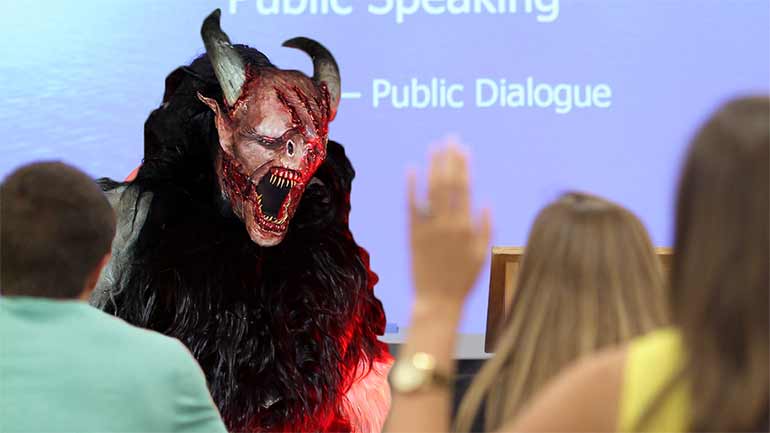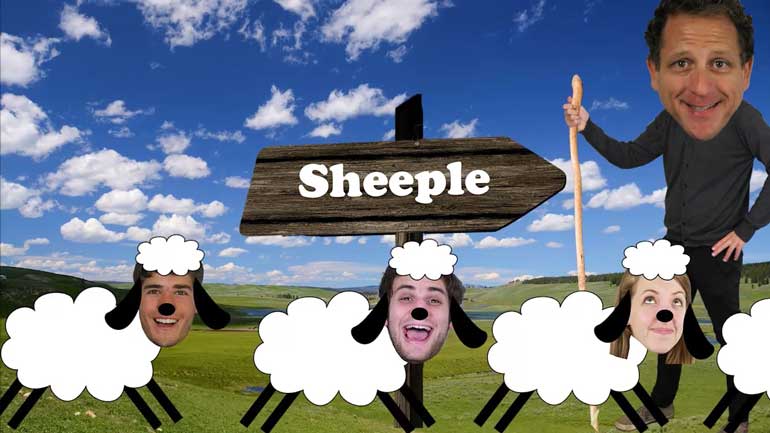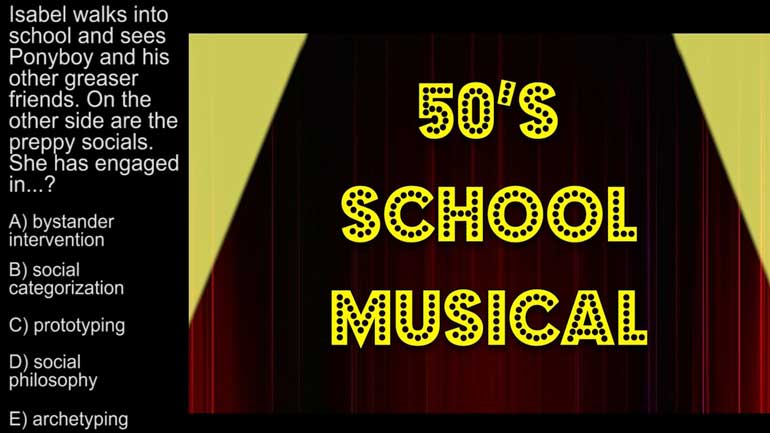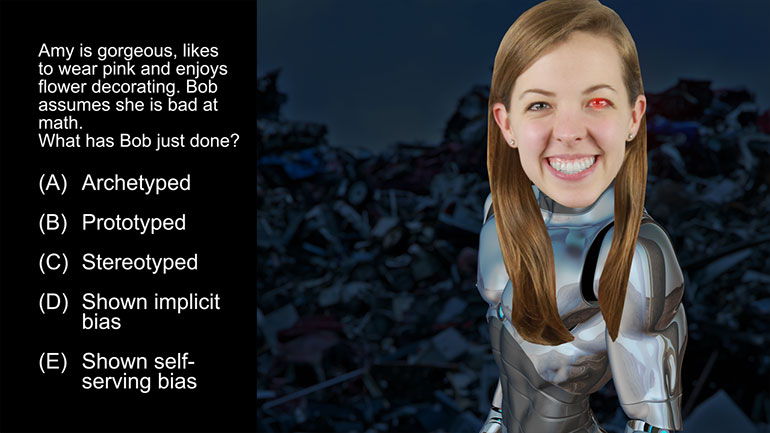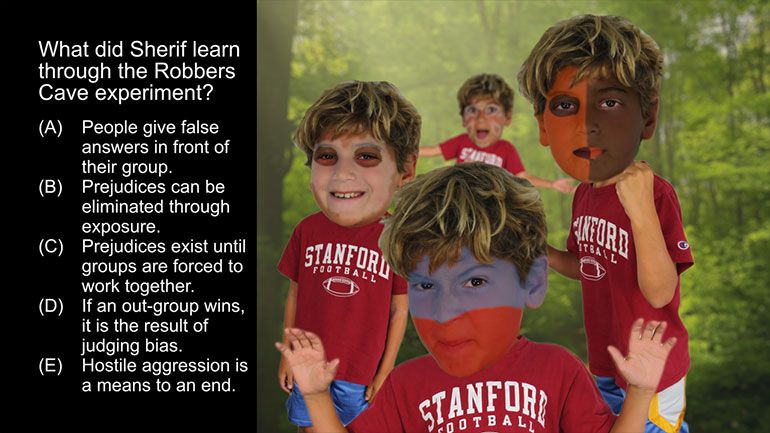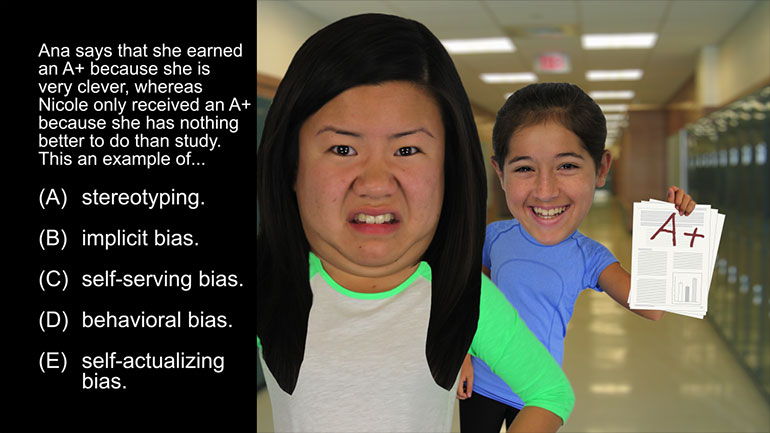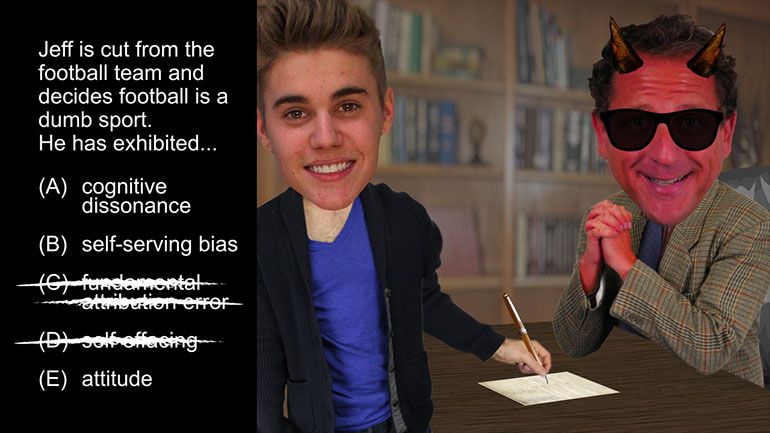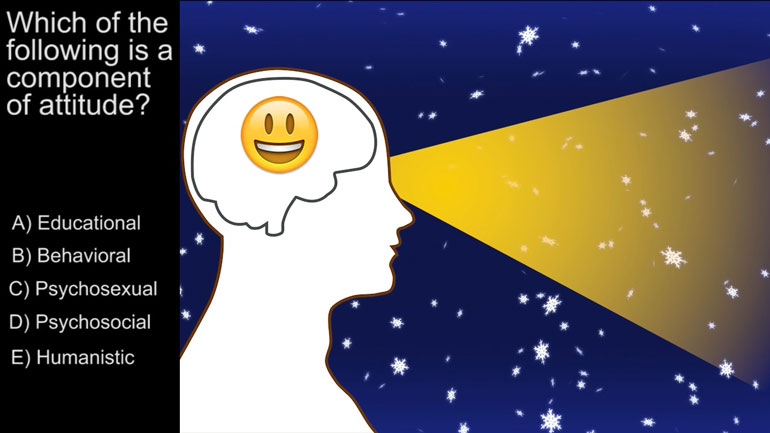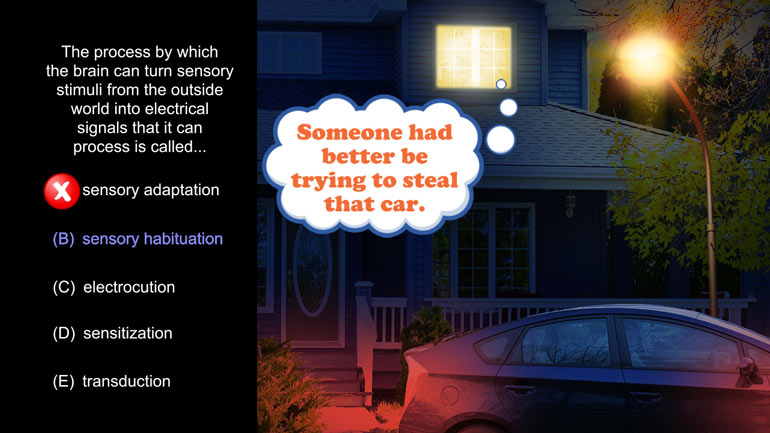ShmoopTube
Where Monty Python meets your 10th grade teacher.
Search Thousands of Shmoop Videos
Social Psychology Videos 14 videos
AP Psychology 1.1 Social Psychology. Which of the following best describes social psychology?
AP Psychology 1.2 Social Psychology. What is the best choice for producing better productivity?
AP Psychology 2.2 Social Psychology. Which of the following was an independent variable manipulated in Asch's research?
AP Psychology 1.5 Social Psychology 2 Views
Share It!
Description:
AP Psychology 1.5 Social Psychology. Which of the following theories are we witnessing?
Transcript
- 00:04
And here's your shmoop du jour brought to you by chocolate cake, the
- 00:07
perfect treat for when you're feeling sad or happy or mad or swell or stressed [Selection of chocolate cakes appear]
- 00:11
or tired take any one, all right we have a food fetish here at shmoop. Jen made a
- 00:15
Duncan Hines chocolate cake with cream cheese frosting when Bella came in the
- 00:19
room and loved cake Jan explained we're great chefs when Biff criticized the
Full Transcript
- 00:22
cake Jan exclaimed Duncan Hines makes a bad product which of the following
- 00:26
theories are we witnessing and here are the potential answers.....Well actually
- 00:32
that's correct that the real question we have is what kind of monster would even [Man stood beside a chocolate cake]
- 00:37
think about criticizing chocolate cake what did it ever do to you Biff, well people
- 00:41
love to make excuses for their own behavior and they really love to take [Boy holding a chocolate cake he made]
- 00:44
credit for things they do well however when it comes to a bad outcome they're
- 00:48
not as likely to own up to it so what's going on here well while we're tempted
- 00:52
to suggest the answer is in fact B, seeing as how this innocent little chocolate
- 00:56
cake here is most definitely a victim that's not exactly what we're looking
- 01:00
for but don't worry cakey we still love you there's no social categorization
- 01:03
going on either that is the process of classifying people into groups based on [Social categorization on a piece of paper in front of a cake]
- 01:07
similar characteristics like age or race though if we had to we definitely
- 01:11
categorize Biff under people who dislike things for absolutely no reason
- 01:14
whatsoever and should be immediately unfriended on facebook... An [mouse cursor clicks unfriend button]
- 01:19
actor observer discrepancy describes the gap in perception between the person
- 01:22
doing something that he or she feels is a response to external factors and a
- 01:26
person observing that behavior and attributing it to the actors internal [Girl outside a window looking at a girl inside]
- 01:30
motivation for example Jen could see herself making the cake as a natural
- 01:34
response to it being Biff's birthday but Biff could perceive this act as a means
- 01:38
of Jen attempting to er, poison him this over emphasis on someone's internal
- 01:43
characteristics to explain their behavior actually has a name it's called [Jen making a cake and Biff appears]
- 01:46
fundamental attribution error neither of these options then fit our question well
- 01:50
the answer we were after is C; a self-serving bias produces attributions
- 01:55
made by someone that always makes them look good when you do something good it [Jen holding a medal]
- 01:59
because of your amazing ability when you do something not so good it's because of
- 02:03
some other factor that had nothing to do with you, well not maybe... [Jen losing in a marathon race]
- 02:07
don't worry cakey we still love you..
Related Videos
AP Psychology 2.2 Social Psychology. Which of the following was an independent variable manipulated in Asch's research?
AP Psychology 1.1 Social Psychology. Which of the following best describes social psychology?
AP Psychology 1.1 Personality. According to Freud, these three parts of personality are constantly in conflict.
AP Psychology 1.1 Sensation and Perception. The process by which the brain can turn sensory stimuli from the outside world into electrical signals...
AP Psychology 1.1 States of Consciousness. Who conducted research on REM sleep deprivations?

